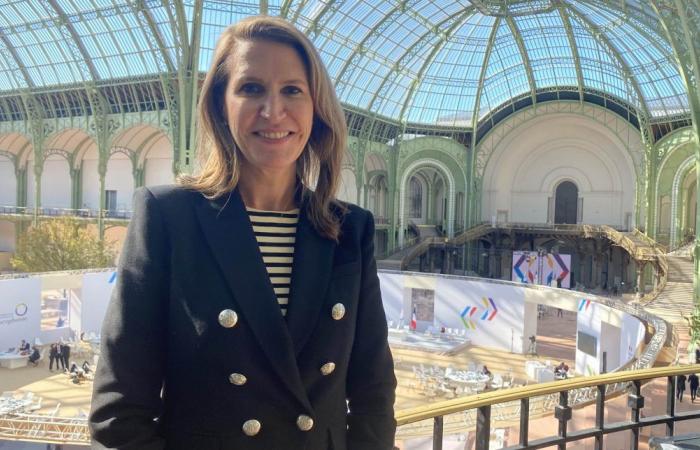
[SOMMET DE LA FRANCOPHONIE 2024]
Paris – Before the heads of state and government at the 19e Francophonie Summit, the Minister of Francophone Affairs, Caroline Mulroney, defended the place of French and the economic pole position of Ontario in Canada.
You spoke at the Ministerial Conference of La Francophonie. What message did you send?
I promoted French Ontario as an important French-speaking jurisdiction in North America. The majority of people here, when they think of the French-speaking world in Canada, think of Quebec. So, I highlighted the fact that we have 700,000 Franco-Ontarians and 1.5 million people who can speak French. We are the economic engine of Canada. People can come, work and live in French in Ontario. I believe the message was very well received.
What notable difference did you perceive between your first summit in Djerba and that of Paris?
In Djerba, I had the chance to conclude Ontario’s first international agreement with the French-speaking region of Belgium, Wallonia-Brussels. Today, I met its new minister-president (Elisabeth Degryse) to discuss the details of this agreement and develop new avenues of collaboration. We are also delighted to have Nova Scotia as a new member of the OIF. I just spoke to Minister LeBlanc. We will develop a path of understanding between Ontario and its province.
How is the diplomatic voice between Canada and the other Canadian delegations (Ontario, Quebec, New Brunswick) articulated in this type of summit? When Justin Trudeau gives Canada’s position, does that mean that Ontario is still on the same line?
Ontario is here to promote the Francophonie and build ties with other countries and organizations. We are very lucky to do this. Canada is also here to engage in diplomacy. It’s very interesting to be at the table to see what Canada is presenting. But Ontario is really focused on how to create opportunities for the province’s francophones.
In this regard, how did you perceive this business Francophonie in the events surrounding the Summit: at the Francophonie Village and at the FrancoTech show?
In Djerba, we did not have a flag. This year, we have a large pavilion which was very successful, in part thanks to an application which attracted many people raising awareness of Ontario, and which came from a collaboration of the Ministry of Economic Development and other departments to create this software. At Station F where the Francotech show was held, the pavilion also attracted many people interested in doing business with French Ontario. They developed a lot of business relationships.
At the end of this summit, are you considering other cooperation agreements like that of Wallonia-Brussels?
In addition to Wallonia, I spoke with representatives of Louisiana, Morocco, Slovakia and other regions (…) I hope that these conversations will lead to other collaborations with Ontario.





